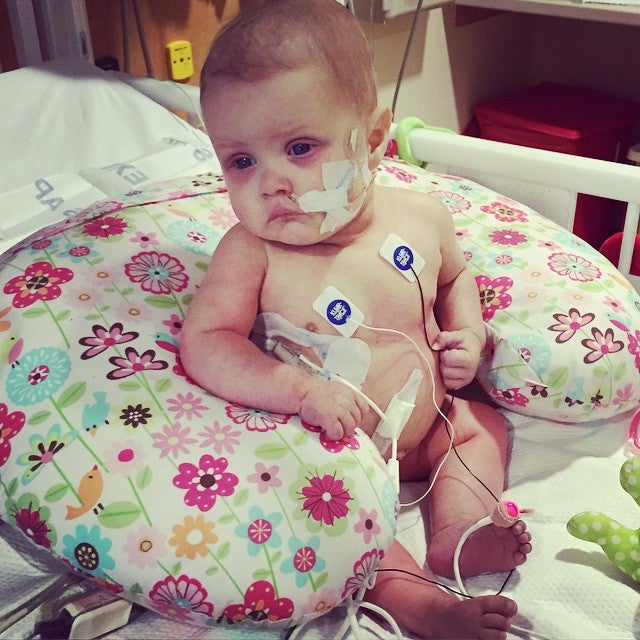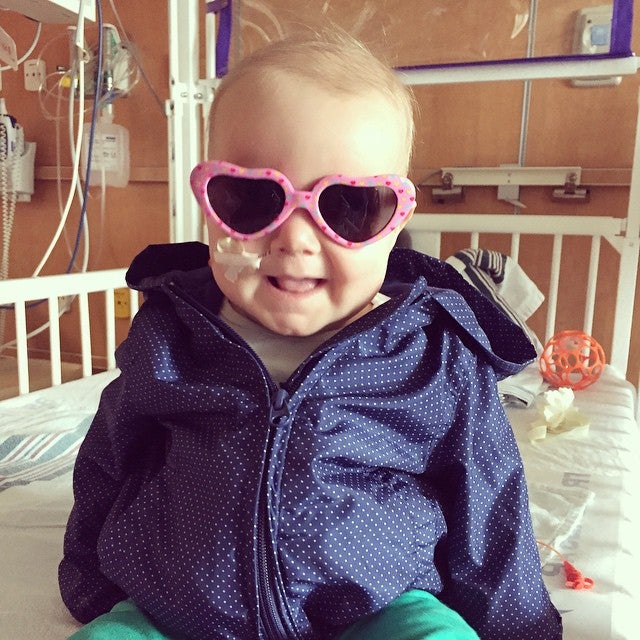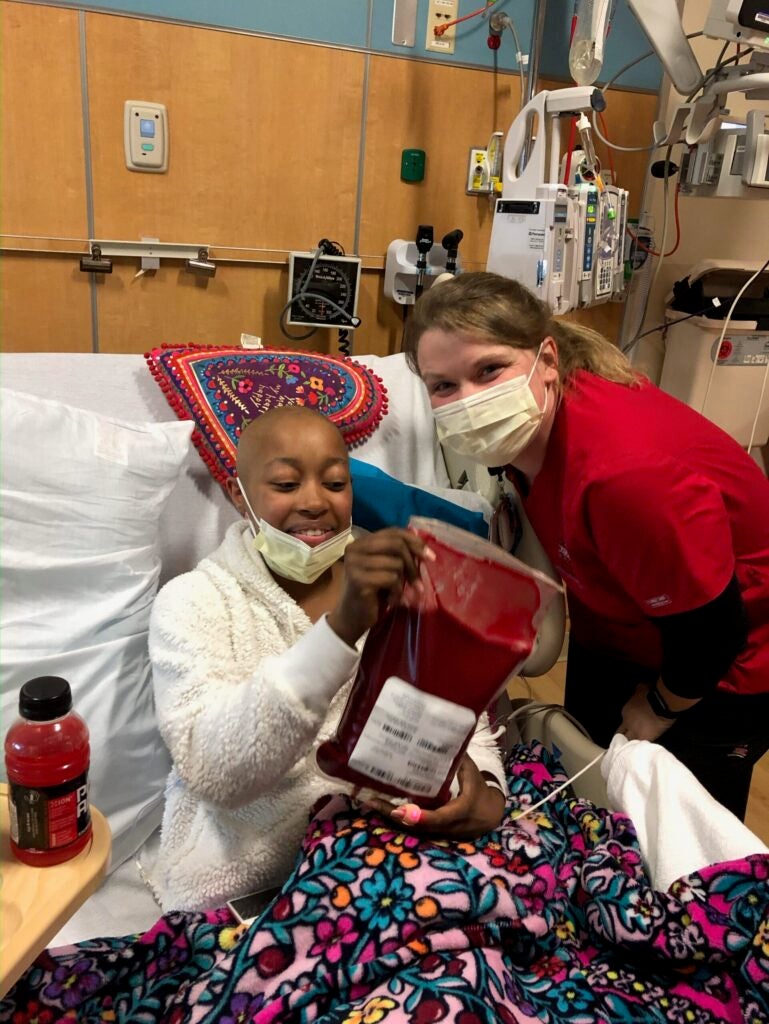Families share 2 girls’ experiences with childhood cancer
According to the American Cancer Society, more than 10,000 children younger than 15 will be diagnosed with some form of cancer this year.
Riley Hospital for Children at Indiana University Health is one of the top hospitals in the country in treating pediatric cancer. Each year, Riley treats an average of 200 children with childhood cancer and provides care for about 350 ongoing cancer patients.
News 8’s Cody Adams knows well the role that Riley and its staff play in caring for children with cancer because his oldest daughter was diagnosed with cancer shortly after birth.
All this week, you’ll get the “INside Story” about what children go through as they fight for their lives, how the illness and its treatment impacts their families, and how Riley makes a difference in the battle against childhood cancer.
Part 1 | Part 2 | Part 3 | Part 4 | Part 5

INDIANAPOLIS (WISH) — Our oldest daughter, Madelyn, was born seven years ago.
Four months after her birth, Madelyn was diagnosed with juvenile myelomonocytic leukemia, a rare form of blood cancer.
Hearing “Your child has cancer” is something no one should go through.
Madi’s mom, Nicole Adams, said, “‘Devastating’ is the word I use. From that moment on, our life was never the same.”
That was our reality. We were thrilled to have a healthy baby girl, but, after just four months, that changed. Our sweet Madelyn was battling for her life.
Shortly after her diagnosis, Madi started receiving treatment at Riley Hospital for Children, where she remained for six months.
Suddenly, simple tasks like holding our new baby were more difficult.
“When I could hold her, I held her all day if I could,” Nicole Adams said. “I just remember them placing her in my arms with all those cords, when she was in in-patient. That was the only way I could hold her, if somebody put her in my arms. I think people take that for granted sometimes. I did.”

Dr. Jodi Skiles is the medical director of the pediatric stem cell transplant and immunotherapy program at Riley. For the last four years, she’s been leading some of the country’s best doctors and nurses in treating pediatric cancer patients from across the region.
“The nature of the field that we work in, with pediatric cancer patients, many times, patients are being referred to us,” Skiles said. “So, we’re not the first line of defense. We are who patients end up seeing as providers that nobody ever wants to see.”
Dr. Skiles handled Madi’s treatment from the beginning, alongside Dr. Kent Robertson and pediatric nurse practitioner Paula Towell.
While under their care, Madi received a bone marrow transplant.
“Madi was diagnosed when she was four months old. I think she presented initially for care when she was three months old,” Skiles said. “We do transplants on kids that young, but it is not the vast majority of the work that we do.”
Watching Madi receive treatment was the hardest and scariest thing we could have imagined as parents. The unfortunate thing is we’re not the only family to ever go through that.
Kendall Wynne was diagnosed with leukemia at 5 years old and, like Madi, received treatment at Riley.
Kendall’s cancer went into remission, but it returned when she was 14 and just starting high school.
“It really came out of nowhere,” Kendall said. “During cheer, I was really tired and all that, so I went to the doctor. They thought I had something with my thyroid, but it ended up I had relapsed.”

Kendall, who is now turning 18, has spent a large majority of her life at Riley. She says the experience has been hard on her and on her mother, Tracie Hobson.
“Yes, it was hard to swallow because when I thought of cancer I never thought of a child with cancer,” Hobson said. “I always thought of an older adult with cancer.”
For Kendall, Madi and other kids, it’s not just the treatment they receive at Riley that helps. It’s also the people.
“I have a deep connection with my doctors,” Kendall said. “They didn’t treat me like I was a patient; they treated me like I was just a normal kid.”
“They kind of treat you like you’re a part of their family,” Madi said. “Every time I walk in there it’s like, ‘Oh, they’re our family.’”
Kendall is a high school senior. Her goal is to become a nurse to help people who face the same battles she has fought.
“I feel like a motivator to other people,” Kendall said. “Just a walking miracle, just to show people I can battle it not only once, but twice, and get through it.”
Kendall is doing better, and Madi is a vibrant 7-year-old with the whole world ahead of her. But, the harsh reality is, their experiences are not what every child that walks through Riley’s doors experiences.
Skiles admits, “I think that part of my job is the most difficult thing we deal with.”